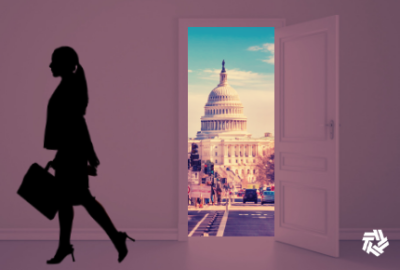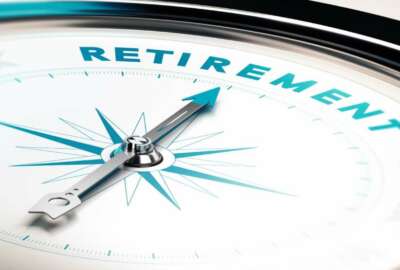

The number of federal employees that retired in 2020 was the lowest in nearly 10 years. The results of an anonymous survey shows the pandemic and telework have...
Far fewer federal employees retired in 2020 compared to previous years, and for some, the pandemic and new telework arrangements have played a prominent role in their decisions to delay and their views about their jobs.
A total of 92,008 federal employees retired in 2020, the fewest in nearly 10 years, according to a Federal News Network analysis of monthly data from the Office of Personnel Management.
By contrast, OPM processed 101,580 retirements in 2019 and 107,612 in 2018.
2020’s total comes close to the number of federal employees who retired in 2016, — 93,713 according to past OPM data — but it still doesn’t the match the lows from 2010, when just 84,427 people left government in retirement.
Federal retirements jumped during the following years, as sequestration and furloughs pushed employees out the door. In 2013, a total of 114,697 federal employees retired that year, a record in the last decade.
Others delayed retirement as they grew accustomed to working from home without the stresses of the daily commute.
As federal employees have said in the past, choosing when to retire is a complex decision driven by a variety of factors, including their age, finances, health and job satisfaction.
A Federal News Network survey of roughly 800 federal employees shows the pandemic, in some cases, was just another complicating factor, and the ability to telework on a near full-time basis is reshaping their views about their jobs, for better and worse.
Federal News Network surveyed its readers about their retirement plans between Feb. 15-22. Because respondents chose to participate in the survey, the results are not meant to be a comprehensive representation of the entire federal workforce and their views.
Of the roughly 480 employees who said they were currently eligible, nearly 26% said they had planned to retire in 2020 or 2021 but delayed to a later date, in part, because of the pandemic.
Another 15% said they planned to leave earlier than they initially planned for a pandemic-related reason.
Roughly 44% said the pandemic had no impact on their plans, but another 14% said they weren’t sure how the pandemic might affect their retirement choices.
For some, telework is an incentive to keep working beyond their originally planned retirement goals.
“Teleworking this last year has reenergized me to stick it out,” one employee said. “Once [my] daily commute starts back up this could easily be adjusted.”
Others said they may change their retirement plans if their agencies allow them to continue working remotely.
“My retirement date of Dec. 31, 2021 is firm,” one person said. “However, if we are still teleworking, I may consider staying for another year. The largest dissatisfier I have with my [position] is the daily commute (one hour each way).”
Several others agreed.
“I was going to retire because I hate the commute,” another respondent said. “Now that we telework 100% of the time, I am staying. When telework ends I will go ahead and retire!”
Others are taking a wait-and-see approach, which they said will depend on how flexible their agency is after the pandemic.
“A lot depends on how much my agency pushes for everyone back in the office,” one person said. “I hate the commute, and if they want everyone back five days a week that’s it for me.”
For many, the pandemic has made some of the usual benefits of retirement less appealing or impossible, at least at the moment.
“There is little incentive to retire into an environment not conducive to retirement plans — travel, visiting family and recreation,” one employee said. “COVID restrictions are definitely having a impact. Until I have my freedom, why retire? Might as well work for a bit and have a more solid financial footing to enjoy freedom when it returns.”
Several federal employees said they “might as well keep working” as long as the pandemic and social distancing requirements restricted their ability to travel, see friends or volunteer.
“My retirement plans include a lot of travel and volunteering,” another respondent said. “Since I am stuck in my apartment 24/7 anyway, I may as well continue to work and draw a paycheck. But the election results also affected my desire to continue working. In my opinion, there is much to ‘fix’ that would benefit from my experience, and the Biden administration will likely make my work as a government scientist more appreciated and a higher priority.”
But for some, reporting to work during the pandemic was the last straw.
“I actually just now retired because of COVID,” one federal employee said. “As an essential supervisor, I got tired of doing all the work while my [more] essential personnel got to stay home on administrative leave or telework.”
There are, of course, those who have retirement plans and are sticking to them.
“Work-from-home and pandemic related issues have not influenced my plan to retire. After 42 years of federal service (half military/half fed) it’s just time to leave (mid-June),” one respondent said.
Another respondent said telework was good practice for retirement later this year.
“[I] have always planned for this year,” the employee said. “The pandemic (max telework) simply allowed me to get a better feel for being at home 24/7.”
When asked to choose from a variety of factors that might influence their retirement decisions, 53% of all respondents named job satisfaction as a major consideration.
About 49% named financial reasons as a major factor that influenced their thinking. A few respondents said they were helping family members who had been financially impacted by the pandemic and were changing their retirement goals accordingly.
Age is also a major actor, as the Federal Employee Retirement System (FERS) incentivizes participants to keep working until age 62.
Financial planners say this is a key target for many federal employees, especially for those who have been investing with the Thrift Savings Plan and have created specific retirement plans.
Many federal employees said their job satisfaction, stress and pressures at work are major factors as they plan for and consider retirement. And even if the pandemic hasn’t directly changed their retirement plans, it has, in some ways, become yet another factor or has shifted in their thinking about their jobs.
“My agency has too few employees,” one person said. “They continue to pile the work on with no end in sight. I’m eligible, I don’t need the headache.”
Another respondent said the pandemic has been exhausting.
“My workload is higher than ever and supervising remotely is more time intensive,” this person said. “I can’t keep this up.”
About 34% of all survey respondents identified their ability to work remotely as one of several factors that will influence their thoughts on retirement.
“Job satisfaction will be a huge part of my retirement decision, as well as the obvious health/family reasons and financial reasons,” one employee said. “My ability to work remotely will play in to this decision, but it isn’t the driving factor.”
For many others, the pandemic and the experiences of working from home are reshaping their views about their jobs.
“I want to build up more of a nest egg for retirement, or I might have thought about retiring earlier as my job satisfaction has stagnated,” one employee said. “But the ability to work for home has really increased my motivation.”
Others agreed.
“[The] main factor in determining my retirement is satisfaction with my job,” another employee said. “Teleworking has led to greater satisfaction, but second is of course that I’m not getting any younger! No one dies saying they wished they had worked more. For me, I just wanted to go out on my terms and not forced to go due to a pandemic or horrible boss.”
Copyright © 2025 Federal News Network. All rights reserved. This website is not intended for users located within the European Economic Area.
Nicole Ogrysko is a reporter for Federal News Network focusing on the federal workforce and federal pay and benefits.
Follow @nogryskoWFED



